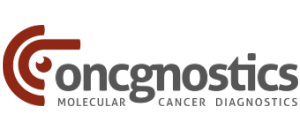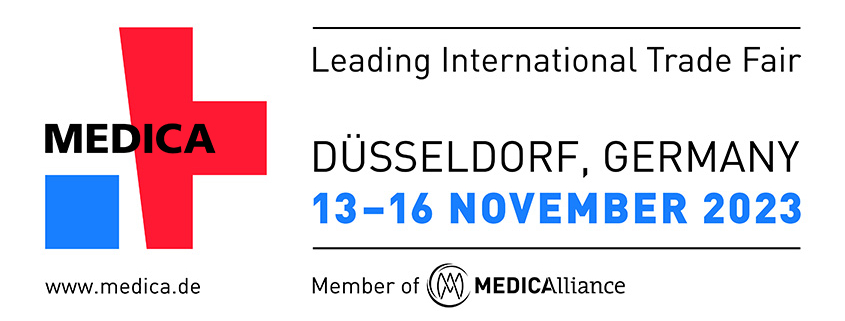Porto / Jena, November 26, 2024 – Methylation tests could significantly increase the accuracy of cervical cancer screening and reduce referrals for colposcopy, which would, in turn, put less strain on the healthcare system. A recent study published in the “Journal of Lower Genital Tract Disease” found that methylation testing of cervical cancer cells could serve as a highly effective method for women who test positive for high-risk Human Papillomavirus (hrHPV).
Fewer colposcopies thanks to methylation tests
The study, titled “Evaluation of Host Gene Methylation as a Triage Method for HPV-Positive Women,” focused on the use of methylation biomarkers to improve the management of HPV-positive cases. Methylation is an epigenetic modification that has been closely associated with cancer development.
All 278 women included in this study were referred due to a positive hrHPV test. Seventy-one of these women tested positive for methylation (25.5%). These results indicate that if methylation testing was used for all hrHPV-positive women, and only methylation-positive women would be referred to colposcopy, there could be a 74.5% drop in referrals at a cost of not diagnosing 22% of high-grade lesions. If methylation testing would be used on women who tested positive for hrHPV genotypes other than 16 or 18, overall referral rate would drop by 60%, at a cost of not diagnosing 10% of high-grade lesions. The option of sending women who test HPV16 or HPV18 positive directly to colposcopy and applying further triage to the ones who tested positive for other HPV genotypes is in line with most cervical cancer screening guidelines.
Impact on the healthcare system
“The HPV test revolutionized cervical cancer screening. The next major advancement will be effectively triaging those who test positive, thereby reducing both the number of colposcopies and overtreatments. This paper enhances existing data on the role of methylation tests and supports their potential as a frontline tool in achieving this goal,” says Dr. Pedro Vieira Baptista, President-Elect of the International Society for the Study of Vulvovaginal Disease and the head of this study.
Dr. Alfred Hansel, Managing Director of oncgnostics GmbH, whose GynTect methylation test was used for the study, adds, “If methylation tests were included in a regulated cervical cancer screening program, up to three quarters of colposcopy procedures could be avoided. This would not only benefit affected women, who would receive a quick and reliable diagnosis, but would also significantly lower the burden on the healthcare system.”
Implications for cervical cancer screening
Most cases of cervical cancer are caused by a long-lasting infection with hrHPV. Traditional screening methods include a Pap smear and/or an HPV test, both of which involve taking a smear of the cervix by a health care professional and sending it to a laboratory.While Pap smears and HPV tests are effective, less than one-third of severe cancer lesions progress to invasive cancer, meaning that a high number of women undergo needless stress and invasive testing.
If women receive a positive HPV test or suspicious Pap smear, they will likely be referred for a procedure called a colposcopy. Here, a light microscope (colposcope), is used to examine the cervix, vagina and vulva. When an abnormality is discovered, a biopsy may be taken for further evaluation. This entire procedure requires allotted time, specific equipment and experienced personnel. This translates into strain on the healthcare system and significant patient anxiety.
Methylation assays in cervical cancer screening
In recent years, hrHPV tests have become a cornerstone for screening cervical cancer and its precursors. Much of this is attributed to less invasiveness, higher sensitivity and fewer false-negatives compared to current routine standards of care.
The methylation assay used in this study targets methylation in six gene regions. These regions have been shown to strongly correlate with high grade intraepithelial neoplasia (HSIL) and cervical cancer. In fact, the study found that this methylation test has a high sensitivity and specificity for HSIL and cancer. Therefore, taking all results into account, hrHPV tests in combination with methylation testing could serve as a reliable cervical cancer screening method to distinguish between women who require immediate clinical assistance and those who can be safely monitored, thereby reducing invasive procedures.
Oncgnostics GmbH
oncgnostics GmbH, founded in 2012 as a spin-off from the University Women’s Hospital in Jena, specializes in the development of diagnostic tests based on epigenetic markers, specifically DNA methylation. The first CE IVD tests for cervical cancer, GynTect and ScreenYu Gyn, were introduced to the market by oncgnostics. oncgnostics leverages its expertise and technological platforms to develop further diagnostic tests, currently focused on head and neck tumors.
+++
Reference:
Vieira-Baptista, P., Costa, M., Hippe, J., Sousa, C., Schmitz, M., Silva, A.-R., Hansel, A., & Preti, M. (2024). Evaluation of host gene methylation as a triage test for HPV–positive women—a cohort study. Journal of Lower Genital Tract Disease.

 Peakstock / Shutterstock
Peakstock / Shutterstock
 oncgnostics GmbH
oncgnostics GmbH Shaily / shutterstock
Shaily / shutterstock


 GeneoDx
GeneoDx
